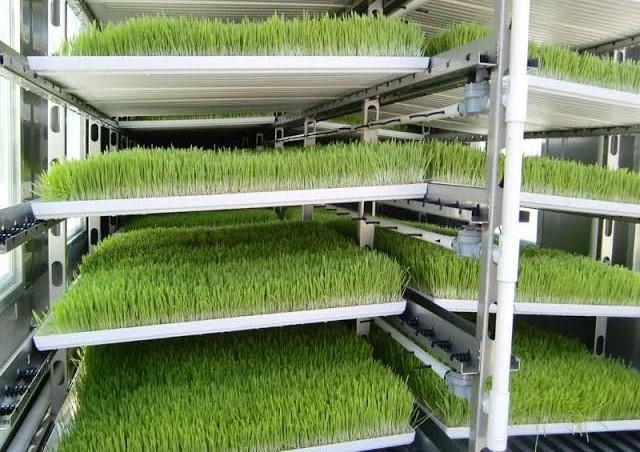The Nigeria Farmers Group and Cooperative Society (NFGCS) says plans have reached advanced stage to train herders on greenhouse to manage its 10,000-capacity ranch currently under construction at Gaate, Nasarawa State.

Mr Tedheke Retson, the National Coordinator, made this known in an interview with the News Agency of Nigeria (NAN) on Wednesday, November 20, 2019 in Abuja, said the herders, which are already working on the farm, would be trained on how to grow grass to feed their cattle without using soil.
He said the essence was to reduce the amount of time required to grow grass to feed the animals as well as limiting the movement of the cattle to make them more fit for the purpose they were being bred.
According to him, the ranch which is expected to take off in December will be the first of its kind in the country, as the project will change the pattern of feeding of livestock in the country.
“We are going to train the Fulani who oversee livestock on the farm on how to use hydroponics (greenhouse). What that means is planting crops or grass without sand to feed the cattle.
“This is to reduce the number of times the animals will be going out to graze in open land.
“Of the 10,000 cattle that will be put in the ranch, 5,000 will be cross bred specifically for dairy purposes and the remaining 5,000 will be for fattening for onward sale in the Southern part of Nigeria.
“It will interest you to know that the south alone consumes in excess of 100,000 cattle a day, a market that is insatiable.”
The coordinator further pointed out that training would not be limited to herders, adding that the group was already discussing with the Nasarawa State Government as well as the Federal Government to train youths across the country.
He said one of the misconceptions that Nigeria “will not work no matter the effort” was unfounded, adding that the group had been able to disabuse the minds of Nigerians on such belief with the level of achievement so far.
“We have been able to sell that message to both the A. A. Sule led administration in Nasarawa as well as the Federal. The Vice President was here, we have met with the Minister of State for Agriculture as well as the Minister of Agriculture.
“The relationship we are trying to create is simple. Now we are beginning to fabricate some of the machineries we need to work in our rice mill, a mill that will be delivering two trailer loads of rice daily soon.
“The state government wants youths from the state to learn how to fabricate this, then we can have a conversation with the Federal Government and say let us turn every community into a rice producing community.
“Our plan is to build a research and training institute here on the farm so that as youths are brought in, we are teaching them the basic machineries that are needed to make agriculture simple for rural Nigeria.
“We are looking at a situation where we dedicate part of our revenue as a country to rural agro development.”
Retson emphasised on the need to make rural Nigeria attractive to reduce rural, urban migration, adding that the plan of the group was to move Nigerians from urban areas to rural areas.
He said the group was working to make rural Nigeria attractive to the point where unemployed youths seeking white collar jobs in urban areas would be willing to go to rural Nigeria to work and be productive for themselves and the society.
“Of course, the most productive industry in Nigeria today is politics and religion. Those are not sustainable. Betting industries are also springing up but they are not sustainable.
“The fact that our youths are spending about N100 billion every month on betting is not sustainable because that is an expectation that is almost lost.
“So, what we are trying to do is to see if we can create a pool effect where NFGCS will create a learning platform where all the arms of government will tap into for us to train Nigerians, to set up a project like the Gaate farm across all local governments in the country.
“If you create 500 jobs in a place like this and it is replicated in 774 local government areas in Nigeria, imagine what we will achieve within the next decade.
“We will not do training in a hotel in the urban centre. We will build hostels for the trainees on the farm to spend up to four months in the farm, train enough and have the capacity to be reproductive.
“For instance, what is in a colour sorting machine for rice that cannot be made in Nigeria?
“We are having a conversation right now with the Adekunle Ajasin University to go to the engineering department and tell them to produce the complete line for making rice,’’ he said.
Retson pointed out that one of the major focuses of the group was to establish a farm settlement with not only a complete value chain of farming, processing and marketing but one with every facility, including medical centre, school and a resort for vacation.
By Cecilia Ijuo
